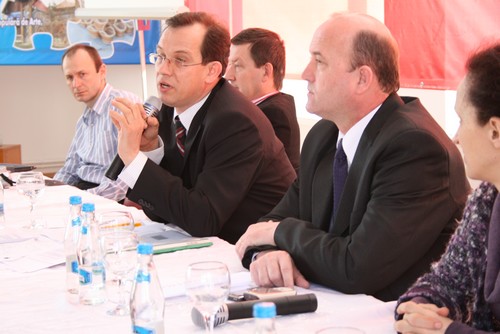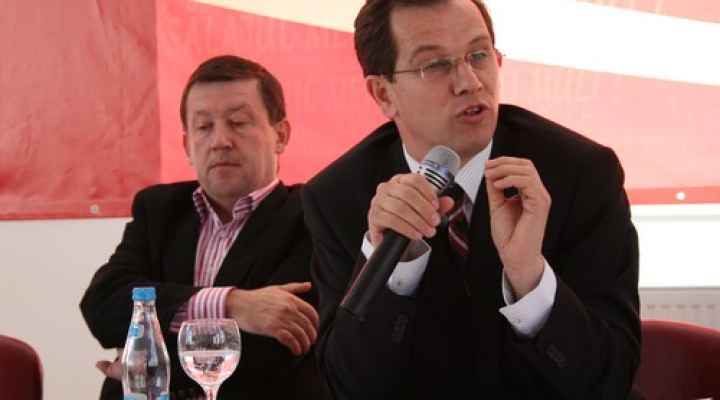Small farms do have a future in the EU
The campaign started with an opening ceremony on Monday, March 29th and will continue with the inauguration of information points in Jibou, Cehu Silvaniei and Şimleul Silvaniei.
The EP has an Information Office in each member state, its task is to inform the population about the community policies and the activities of the EP. The EP office in Bucharest initiated the series of information campaigns in the field of agriculture, since the EP has gained co decisional rights in this particular field also, given the recent coming into force of the Lisbon Treaty.
The Sãlaj County Council gave home to the opening ceremony, its president, Tiberiu Marc voiced his delight about the fact that the series of campaigns begins in Sãlaj County, saying that almost half of the county’s population lives in rural areas and 8% of the region’s product comes from this field. Afterwards, Lucinia Bal, the head of the Information Office presented the goals of the campaign and Sándor Végh, prefect of Sãlaj County greeted the audience.

MEP Csaba Sógor was the guest speaker of the opening ceremony. He made a presentation about the role of the European Parliament in the development of agricultural policy. The Hungarian MEP from Transylvania greeted the changes brought forth by the Lisbon Treaty, emphasizing on the wider role of the EP. It is known that before Lisbon only the European Commission had decision rights in agricultural matters. On the other hand, the MEP voiced his concern about the lack of middle and long-term agricultural strategy of the EU. Answering questions from the audience, Csaba Sógor explained that the future of small farms in Europe is not as bleak as some would paint it, because in 2007 there were more than 13 million such family- and small farms with an area of 12 acres or less.
The ceremony continued with Tiberiu Marc’s presentation of the
Ruraland programme that aims the diversification of rural economy
through exchange of best practices and finished with the presentation
made by the representatives of the Romanian Agricultural Payment Agency
about the different types of grants and agricultural allocations.











